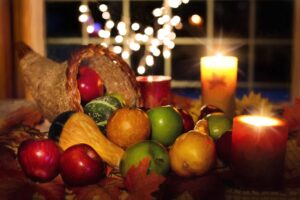It’s hard to believe that, as we write this blog post, Thanksgiving and other fall and winter holidays and celebrations are just around-the-corner. It’s been another strong business year for us, and we greatly appreciate those customers and prospective customers who engaged us, or considered us, for roof installation/roof replacement work!
We love the community we live & work in, and want to help keep our fellow South Shore residents and business owners informed of the many special and meaningful 2024 holiday events and activities happening locally! So, be sure to check this list out that we recently compiled and will continue to add to!
South Shore Holiday Events and Activities
South Shore Holiday Runs, Races, Walks, Hikes — Exercise For A Cause!
- Hanover (Nov. 3): South Shore Half Marathon & 5K
- Randolph (Nov. 9): Pack The Pantry 5k Run/Walk
- Hingham (Nov. 16): South Elementary School 5K
- Plymouth (Nov. 17): Dirty Turkey 5K
- Norwell (Nov. 24): Norwell Turkey Trot
- Hingham (Nov. 28): Hingham Turkey Trot
- Plymouth (Nov. 28): Running Of The Pilgrims
- Abington (Dec. 1 – Jan. 26): Winter Fun Run Series
- Pembroke (Dec. 7): Winter Lights 5K
- Plymouth (Dec. 22): Cousin Eddie’s Christmas Run
South Shore Family Events and Activities
- Braintree (Nov. 1): South Congregational Holiday Fair
- Braintree (Nov. 8): Relay For Life Of Greater South Shore Quarter Auction (ADK Dance Studio)
- Carver (Nov. 8 – Dec. 31): Edaville Christmas Festival of Lights & More!
- Braintree (Nov. 14): Relay For Life Of Greater South Shore Holiday Card Making
- Braintree (Nov. 16): Emmanuel Episcopal Parish Holiday Fair
- Marshfield (Nov. 29 – Dec. 20): South Shore Drive-Thru Light Show
- Hanover (Nov. 30): Hanover Holiday Stroll
- Rockland (Nov. 30): Rockland Holiday Stroll
- Plymouth (Dec. 7): Plimoth Patuxet Winter Arts & Crafts Fair
- Cohasset (Dec. 14): Cohasset Holiday Stroll
- Plymouth (Dec. 14, 15, 21): Breakfast With Santa
- Kingston Luminaries: (Dec. 21)
South Shore Holiday Music Events
- E. Weymouth (Dec. 6): Southeastern Philharmonic Orchestra
- Braintree (Dec. 7): Braintree Choral Society
- Whitman (Dec. 8): Southeastern Philharmonic Orchestra
- Plymouth (Dec. 14 & 15): Plymouth Philharmonic Orchestra
- Quincy (Dec. 15): Quincy Choral Society
As mentioned above, we’ll continue to add to this post as we learn of new South Shore holiday activities and events, so please check back!
Keeping Your Home and Your Family Safe During The Holidays
As we outlined in our previous blog posts (shared below), some common holiday home damage and health risks/concerns can be avoided by taking necessary precautions. So, be sure to take the time to read these to ensure your family and guests enjoy a safe and happy holiday season! And, don’t hesitate to reach out to our team of roofing experts when we can be of assistance this holiday season and winter!
Act Now So That Ice Dams Don’t Dampen Your Holiday Spirit and Festivities!
Why Wet Home and Office Walls Warrant Taking Immediate Action
Making Your Home Holiday-Ready: Easy, Inexpensive Ideas To Make It Both Safe & Inviting
Be Carbon-Monoxide Smart to Keep Loved Ones Safe This Winter
Plan Now to Avoid Singing The Power-Outage Blues This Winter
8 Steps To Keep Your Home and Family Merry & Safe This Winter and Holiday Season









